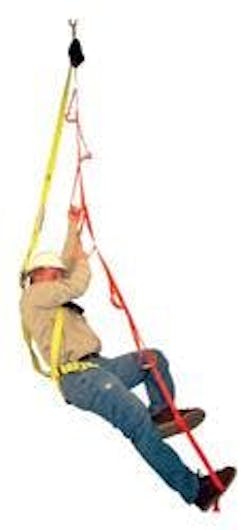“U-RES-Q” Alleviates Suspension Trauma and More!
FrenchCreek Production, Inc (FCP) a Franklin, PA based manufacturer of quality Fall Protection and Rescue/Recovery Systems, has officially announced the release of the U-RES-Q - a product designed to not only alleviate suspension trauma in the event of a fall, but to also allow a capable worker the option of climbing back to the anchor point! The U-RES-Q was developed prior to FrenchCreek’s most recent invention - the U-STEP. “The two products function differently, yet accomplish a similar goal,” says FCP President and Founder Carl Wible. “With the release of both products, we are providing our users with quality options in combating suspension trauma.” The U-RES-Q is available as an option to many FrenchCreek shock absorbing lanyards. A standard shock absorbing lanyard may save you in the event of a fall, but remaining suspended after the fall is another problem all together. It is common knowledge in the fall protection industry that every minute in suspension, after a fall, is extremely crucial! If even the slightest of falls should happen to occur, the light-weight U-RES-Q pouch releases into rescue mode by automatically ejecting a high strength, 16’ synthetic rescue ladder! At that point the worker can attempt to climb back to the anchor point, or simply stand on the ladder to relieve pressure, increase blood flow, and ensure enough time for emergency response. The U-RES-Q is the most reliable, most secure product in alleviating Suspension Trauma. It is an option you can’t afford to be without! The U-RES-Q is to be used in conjunction with a full body harness and a complete fall prevention/rescue program. It is also available as an ‘add-on’ option that can be utilized in-line with any standard shock absorbing lanyard and anchor. What is Suspension Trauma? Suspension Trauma or Orthostatic Intolerance is a condition that can occur when an individual remains suspended, even for short amounts of time. Suspension in a harness can restrict the blood flow through the veins in the legs, causing the blood to pool, and slowing the flow to all major organs, including the brain – resulting in unconsciousness. If the individual is not rescued in a timely manner, serious injury or death may occur.
